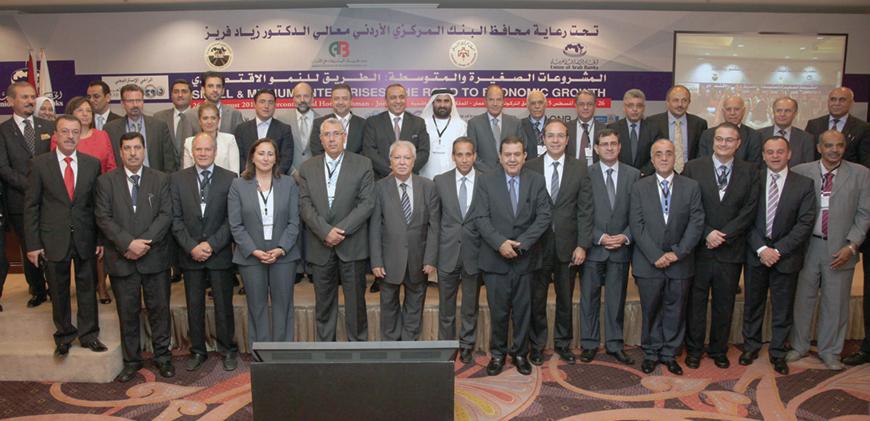You are here
Arab banks should extend more credits to SMEs — banking experts
By Petra - Feb 18,2015 - Last updated at Jun 09,2016

AMMAN – Arab banks should extend a wider share of their credit facilities to small-and medium-sized enterprises (SMEs) due to their role in improving socio-economic development, banking experts said Wednesday.
Speaking at the Arab Banking Forum, they stressed the importance of finance diversification to cover economic and social sustainable development schemes.
The forum, organised by the Union of Arab Banks (UAB) in cooperation with the Central Bank of Jordan (CBJ), the Association of Banks in Jordan (ABJ) and the World Union of Arab Bankers, focused on the precautionary measures and good practices in crisis management.
CBJ Governor Ziad Fariz acknowledged that Arab central banks are "aware of the importance of increasing credits to SMEs due to their role in capital investment, providing work opportunities and contributing to the overall economic growth".
He said that world economic and financial crises and political unrest pose huge challenges on the Arab banking industry, adding that impediments should be addressed through enhancing the capabilities of banks to deal with risks and shocks.
Fariz added that CBJ established a financial stability department in 2013 to draw up monetary policies in order to maintain financial stability in the Kingdom.
In addition, the bank formed a committee last year to draw up a comprehensive and effective plan to manage banking crises, which aims to prevent the impact of any financial crisis on the national economy, according to the CBJ governor.
Noting that the bank's risk management instructions are in line with the principles of the Basel Committee on Banking Supervision, the governor said the CBJ continues to ensure the effectiveness in improving the financial institutions' crisis management and governance skills.
ABJ Chairman Basim Salem noted that the global financial downturn has exposed organisational shortcomings in the world financial system, indicating that the CBJ along with other Arab central banks have took a series of measures to cope with the developments on international practices governing risk management.
UAB Secretary General Wissam Fattouh descibed the performance of the Arab banking sector in 2014 as "distinctive" compared to 2013, pointing out that the Arab banks' assets grew up by 10 per cent last year, reaching $3.1 trillion.
He indicated that customers' deposits in Arab banks stood at $2 trillion in 2014, while facilities provided to different economic activities amounted to $1.7 trillion, nearly 60 per cent of the Arab gross domestic product.
On the other hand, Fattouh said the lack of economic and political will in some Arab countries, especially in relation to financing SMEs and combating unemployment is a major concern.
"The share of finacing for SMEs does not exceed 10 per cent of the total facilities provided by the Arab banking institutions," he said.
Related Articles
Central Bank of Jordan (CBJ) Governor Ziad Fariz revealed this week that new specialised bodies are on the table to fund small-and medium-size enterprises (SMEs), if banks are unable to do so.
The Arab Fund for Economic and Social Development (AFESD) on Wednesday extended a $50 million credit to finance small-and medium-sized enterprises (SMEs) in Jordan, either directly or through micro-funds.
AMMAN — Developments in the region, especially the drop in oil prices, require a "genuine" stance to empower small-and medium-sized en
















